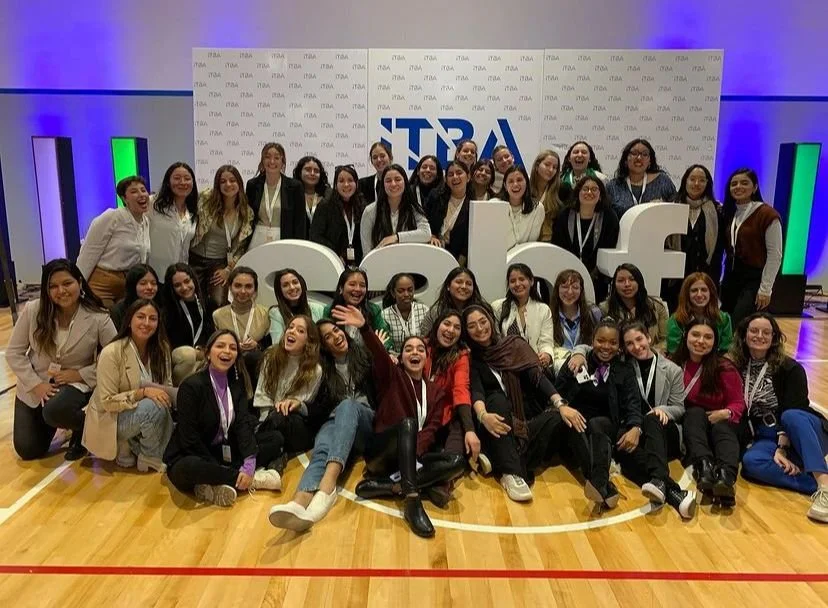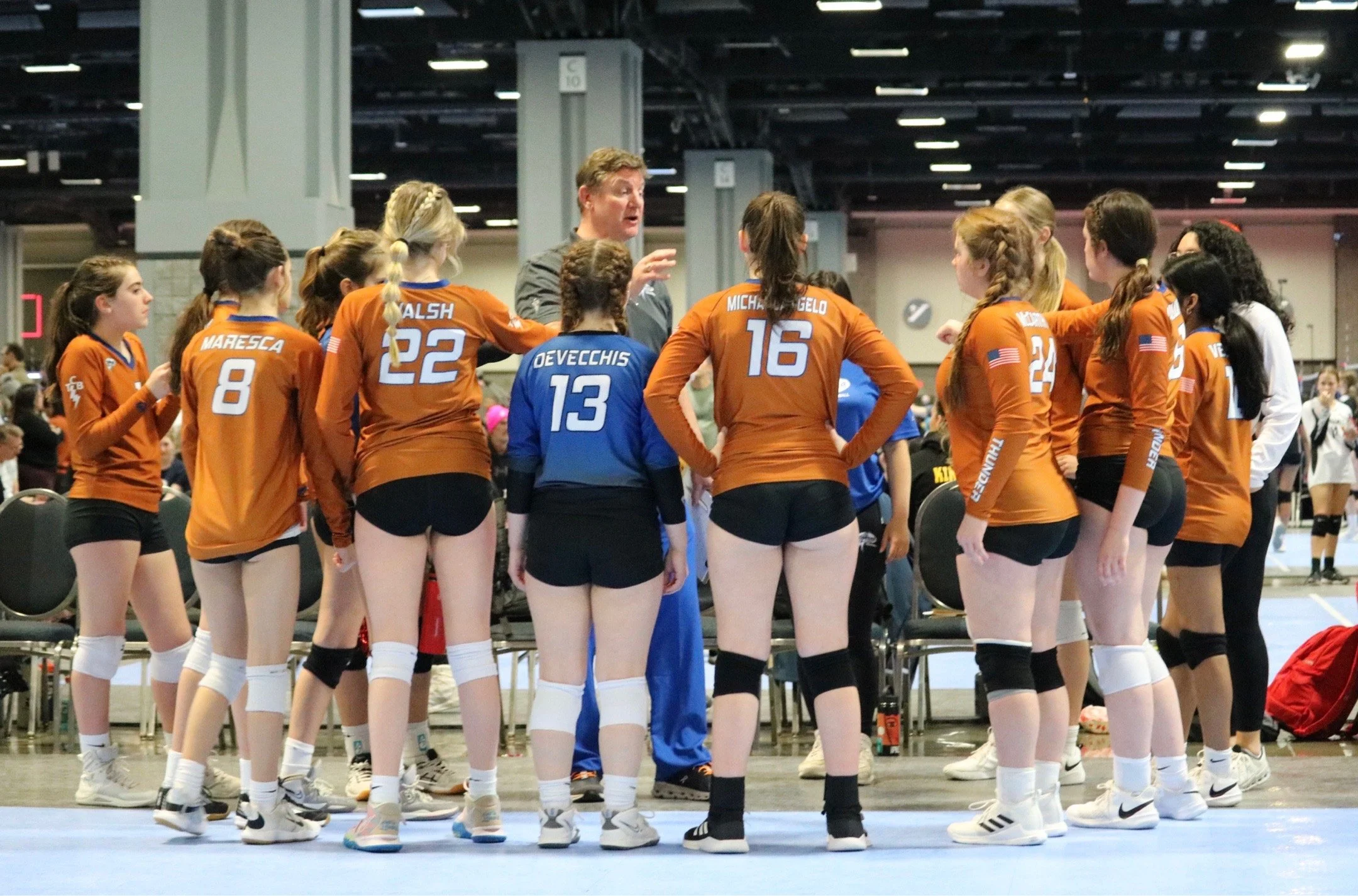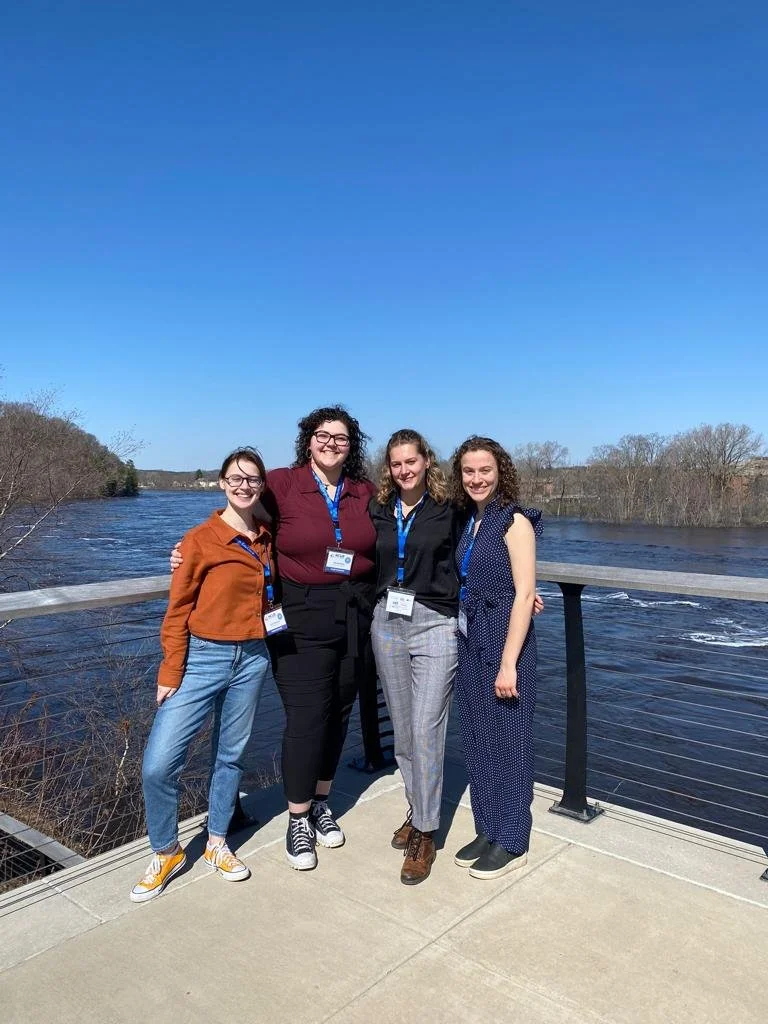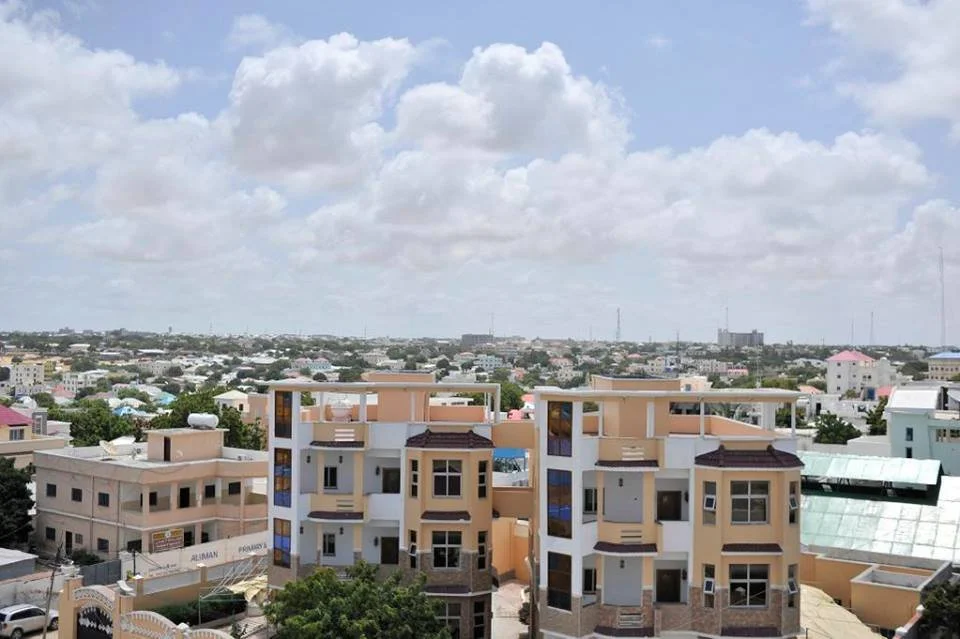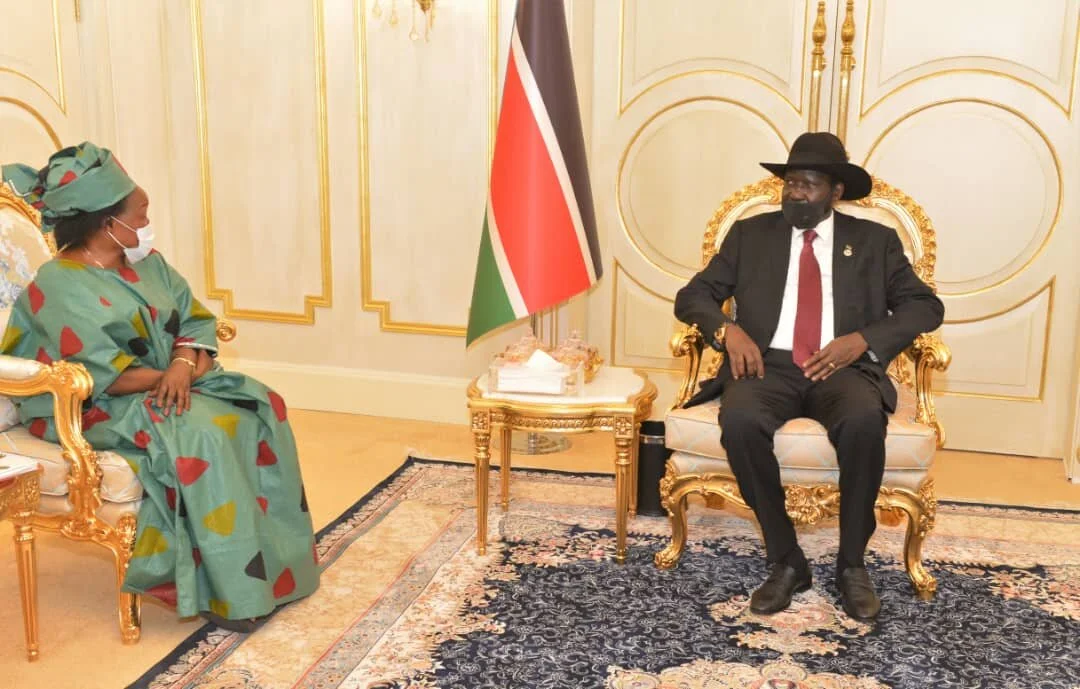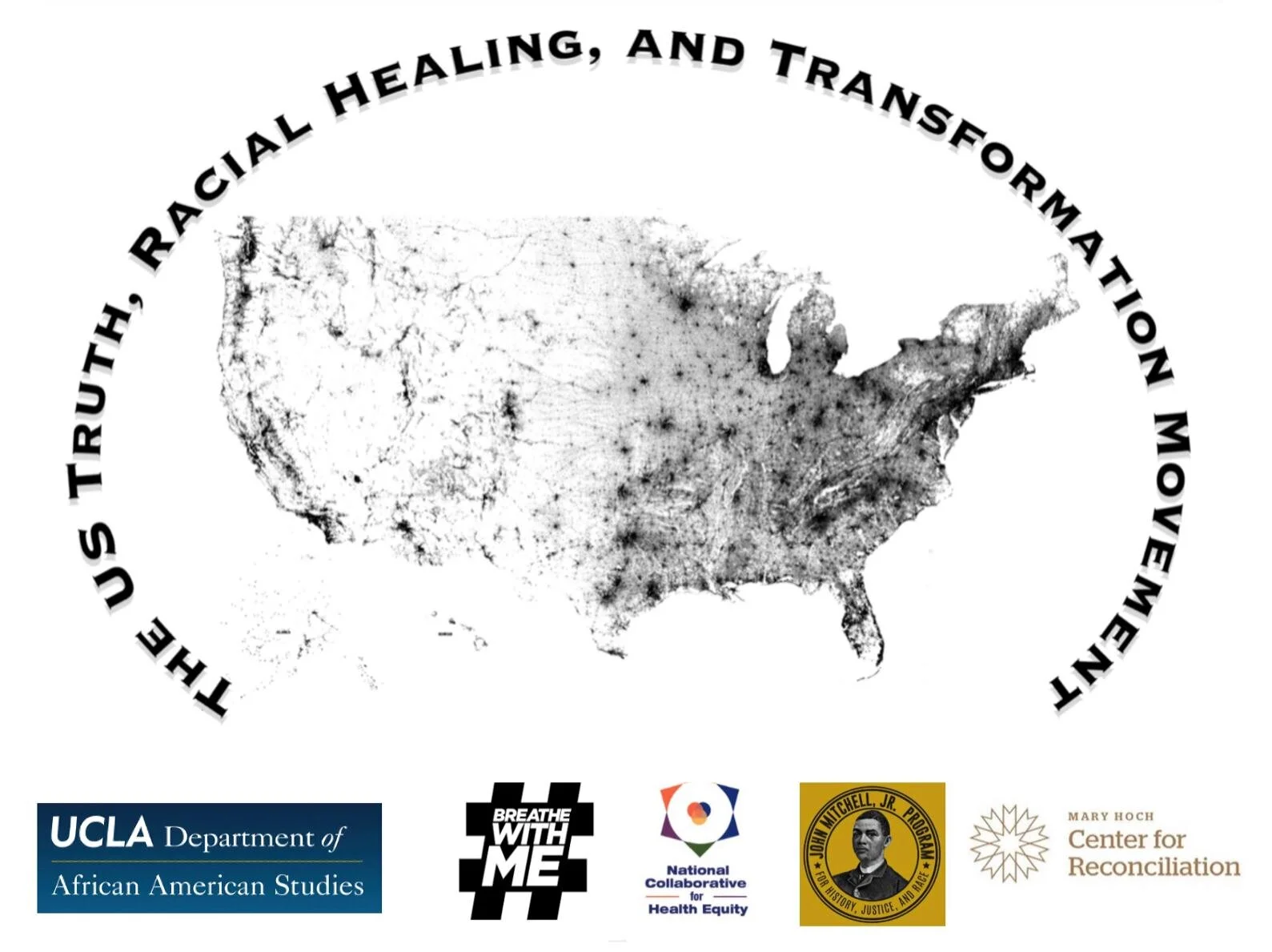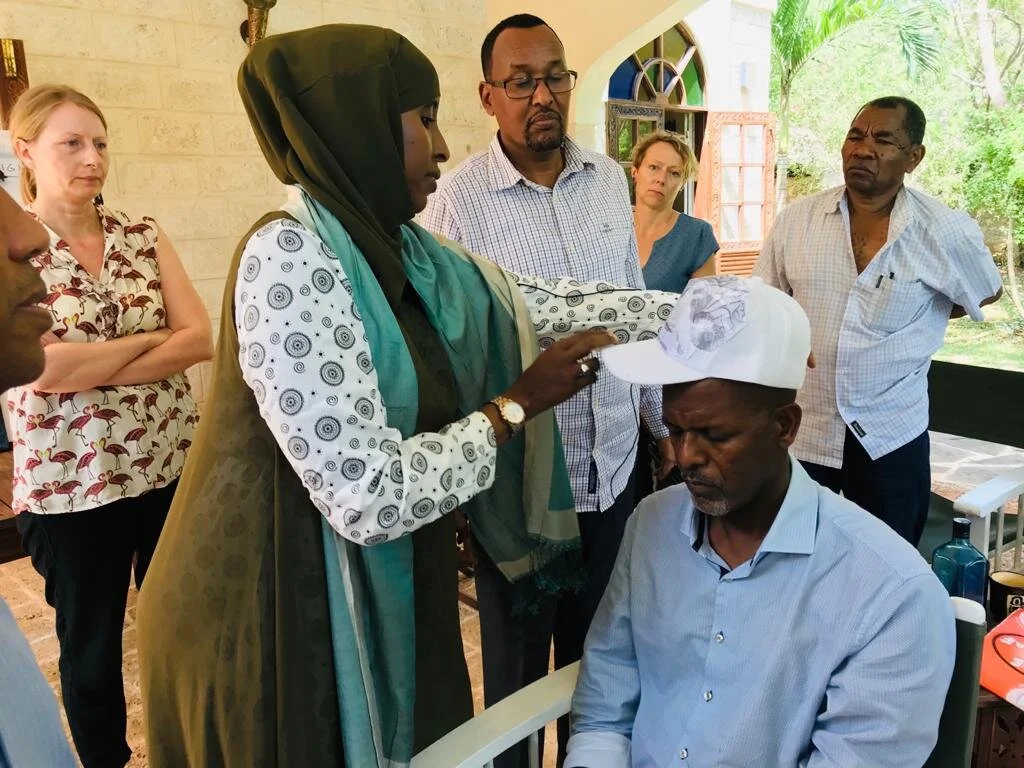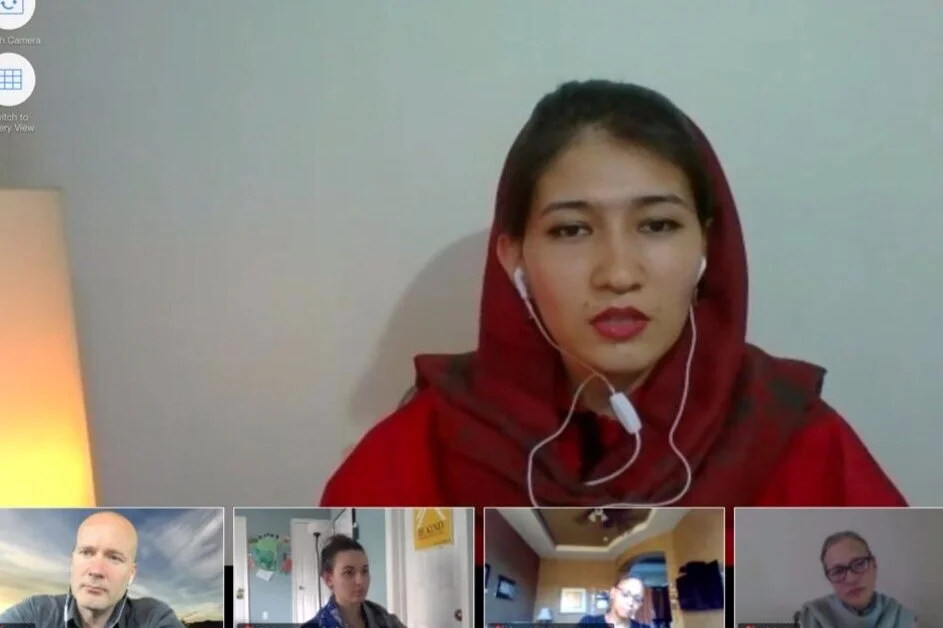Betty Bigombe is one of the most internationally renowned women mediators from Uganda. She has served in various roles within the Ugandan government and is known for her crucial work in bringing Joseph Kony, leader of the Lord’s Resistance Army, to peace talks during the early 1990s. She has also worked within the World Bank and is a Senior Fellow at the United States Institute of Peace. Currently, Bigombe is also a Fellow for Mary Hoch Center for Reconciliation. During the conversation, Bigombe shared more about her vast experiences as a mediator and what she has learned along the way.
Official Launch of the US Truth, Racial Healing, and Transformation Movement
On June 4th, 2020, Congresswoman Barbara Lee introduced H.Con.Res.100 to the house to create a US Commission on Truth, Racial Healing, and Transformation. The purpose of the US TRHT is “to properly acknowledge, memorialize, and be a catalyst for progress toward jettisoning the belief in a hierarchy of human value, embracing our common humanity, and permanently eliminating persistent racial inequities.”
Learning from Experience: Truth and Reconciliation Processes in the US
On December 10th, 2020 the Mary Hoch Center for Reconciliation will be hosting a webinar titled Learning from Experience: Truth & Reconciliation Processes in the US highlighting past truth commissions in the US. The webinar will feature speakers from four previous Truth and Reconciliation Commission (TRC) experiences: the Greensboro, North Carolina the Maine-Wabanaki TRC, the Truth-Telling Project, originally from Ferguson MO, and the North Carolina Commission of Inquiry on Torture.
Addressing the Heart Wounds of Somalia
“Can a country rebuild without dealing with the individuals that make up the country and their trauma?” MHCR Reconciliation Fellow Rowda Olad seeks to be a solution to the problem addressed by this question. Rowda Abdullahi Olad is a psychotherapist and peacebuilder whose work has led her back to Somalia where she has founded the Mandeeq Mental Health Without Borders. Rowda explains her drive and reason behind her work.
Celebrating One Year of Growth and Transformation
Last year the Mary Hoch Center for Reconciliation began as a small, committed team with ambitious goals to contribute to global reconciliation efforts. Now, just one year later in the midst of a global pandemic, this budding organization has provided psychosocial support to peacebuilders during COVID-19, supported the Sami people of Finland with indigenous reconciliation processes, launched a Transformation and Reconciliation Lab, been recognized at the UN Security Council, and so much more. On October 14th MHCR virtually celebrated this incredible journey with key team members, supporters, and community members. This event offered an both an opportunity for reflection and for envisioning the years to come.
MHCR First Anniversary Celebration
Come join us on October 14th from 7 - 8pm EST to learn more about MHCR’s work through the past year. You will have an opportunity to hear about projects such as our assistance with forming a Truth, Racial Healing and Transformation Commission in the United States, support of peacebuilders' mental health, launch of the student-led Transformation and Reconciliation Lab, and more! Register here.
Bringing International Experiences on Truth Telling and Transformation to the US
“Inequality was woven into our country’s DNA.”, said Shelly Marc, the Deputy Chief of Staff for Congresswoman Barbara Lee. Her words opened the webinar on Truth-Telling and Transformation, an event convened during #TruthWeek by MHCR along with Rep. Barbara Lee’s office, #BreatheWithMe, +Peace, and the John Michell Jr. Program. The goal of #TruthWeek was to raise awareness and build a movement behind Barbara Lee’s bill H.Con.Res.100 which would establish a US Commission on Truth, Racial Healing, and Transformation. As of now (Sept. 23, 2020) the resolution has gained 163 co-signatories in the Congress. #TruthWeek was part of a larger effort to promote this important bill which could lead to much needed transformation in our country and MHCR was glad to play a role in convening leading international experts to share best practices in reconciliation process design and implementation. The purpose of this exchange was to hear from individuals who had contributed to the complex process of planning reconciliation processes in South Africa, Canada, and South America, learning from the challenges that they endured and bringing their lessons learned to this critical moment in the United States.
#TruthWeek September 14-18, 2020
On Friday, September 18th, the final day of #TruthWeek, the Mary Hoch Center for Reconciliation will convene with #breathwithme to facilitate an interactive exchange among speakers from South Africa, Canada, and South America who will share their experiences and lessons learned from national truth-telling and reconciliation processes in their own contexts.
What Does It Mean to Create Space for Peace?
What does it mean to take up space for peace? Monica Curca, an affiliate of the Mary Hoch Center for Reconciliation at George Mason University’s Jimmy and Rosalynn Carter School for Peace and Conflict Resolution, found herself mulling this question over during her participation in the Black Lives Matter protests in Washington, D.C., at the beginning of June.
As the interim director of +Peace and the founder of Activate Labs, Curca was at the forefront of efforts between nine D.C.-based peace organizations to create a model for what would become a series of “peace activations” within the broader protest movement taking place at Black Lives Matter Plaza.
Her efforts were supported by Elicia Yoffee, a master’s student at the Carter School and Project Manager with the Mary Hoch Center, and by Clara Debman, a D.C. artist and co-host of The Hive, a digital gathering space for peacebuilders and changemakers.
Peace activations are experiential co-design processes that integrate art, music, and festival-like elements in open spaces, often alongside larger policy or narrative change efforts.
“Supported People Support People”
MHCR’s Learning Exchange on Supporting Peacebuilders During COVID
On 26 May 2020, we convened a Learning Exchange for Providing Psychosocial Support to Peacebuilders during COVID-19. The Learning Exchange featured representatives from nearly 40 peacebuilding NGOs, academic centers, and peer networks; each representative possessed first-hand knowledge and exposure to the impact of COVID on the lived experience of peacebuilders operating in conflict zones around the world.
